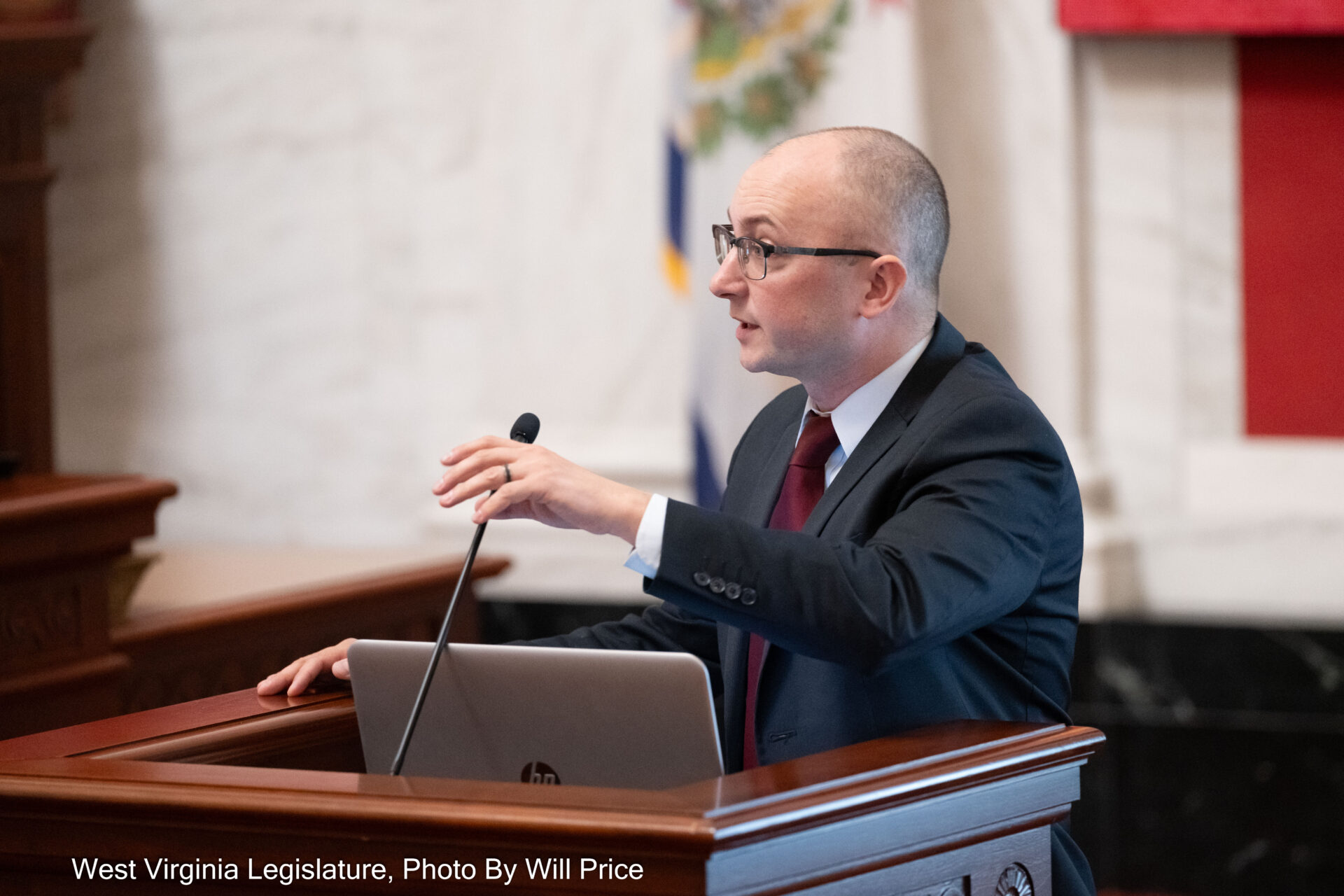Updated on Tuesday, Dec. 17, 2024 at 4 p.m.
The West Virginia Department of Health (DH) announced Monday that the state’s health officer had resigned.
The resignation from Dr. Matthew Christiansen was submitted on Friday. He told West Virginia Public Broadcasting he plans to return to his medical practice and serve his local community.
Christiansen has worked in West Virginia’s state government for about four years, first overseeing the Office of Drug Control Policy (ODCP) until he was appointed state health officer by Gov. Jim Justice in January 2023.
In announcing Christiansen’s departure on Monday, the West Virginia Department of Health (DH) highlighted his achievements as State Health Officer and thanked him for his service.
“I would like to thank Dr. Christiansen for his time serving as state health officer,” DH Secretary Sherri Young said in a press release. “We wish him nothing but the best as he explores new opportunities.”
During his tenure, Christiansen worked to rebuild the public’s trust by visiting all 48 local health departments in West Virginia and launching monthly engagement calls to coordinate support for those departments.
“One of the things I’m proud of is going out and visiting every single health department in the state, which is a first, as far as I know of, for a state health officer and rebuilding that relationship, so that when the next crisis hits, when the next whether it’s a flood or a pandemic or some of an issue that comes that threatens the health of West Virginians, there will be a strong infrastructure and backbone there to support, to support action and to support the solution for West Virginians,” Christiansen said.
Christiansen also said he is proud to have launched the state’s first anti-vaping campaign targeting youth.
According to the DH release, Christiansen established outcome measures for every office and division within the Bureau for Public Health (BPH) and restructured the Fatality-Mortality Review Team process.
Christiansen told West Virginia Public Broadcasting on Monday afternoon that he is ready to return to his medical practice.
“(I) don’t want to overstay my time in government, where I lose sight of some of the real problems and issues that people are facing on the ground,” Christiansen said. “So for me, from a career standpoint, this is really time for me to get back to the practice of medicine, and get back to rolling up my sleeves on the ground in the community.”
Christiansen will continue to represent Region Five on the board of the West Virginia First Foundation, the nonprofit responsible for dispersing the state’s opioid settlement money. He is also the organization’s vice chair.
With upcoming swearings-in and administration changes in January 2025, it is currently unclear who will appoint West Virginia’s next state health officer.
A representative from Gov. Jim Justice’s office provided West Virginia Public Broadcasting with a copy of Christiansen’s resignation letter via email and directed reporters to ask the Gov. during his next briefing if he plans to appoint Christiansen’s replacement before he is sworn in as a U.S. Senator in January 2025.
The following day, during Justice’s Dec. 17 administrative briefing, he said he will leave the appointment of the state’s next Health Officer to Governor-elect Patrick Morrisey.
“I think we should leave that to Patrick and his team,” Justice said. “You know, it’s too tight and everything. And I think they’ll do a good job picking somebody, and I think that ought to be their pick.”
Governor-elect Morrisey’s office did not respond to a request for comment.
**Editor’s Note: This story was updated to include Gov. Justice’s decision not to appoint a state health officer, which allows Gov.-elect Patrick Morrisey to fill the position after he takes office.
